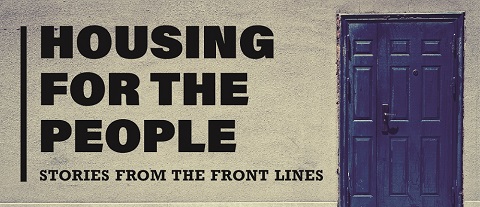By The Big Issue Australia vendors
I once had to spend nine months living in a backpackers’ hostel while waiting for transitional housing. I was abused and bullied by people staying there and discriminated against by staff. I had to share a room with up to 10 people, including men. I got bed bugs and scabies, and everything was dirty. I could not wash my clothes in the washing machine as they would come out dirtier, so I hand washed them, but could not hang them out for too long as they would get stolen. There was constantly music from the nightclub across the street and people came and went at all hours so sleep never came easily. When I moved to St Barts transitional housing, it felt like heaven. – Pat, His Majesty’s, Perth
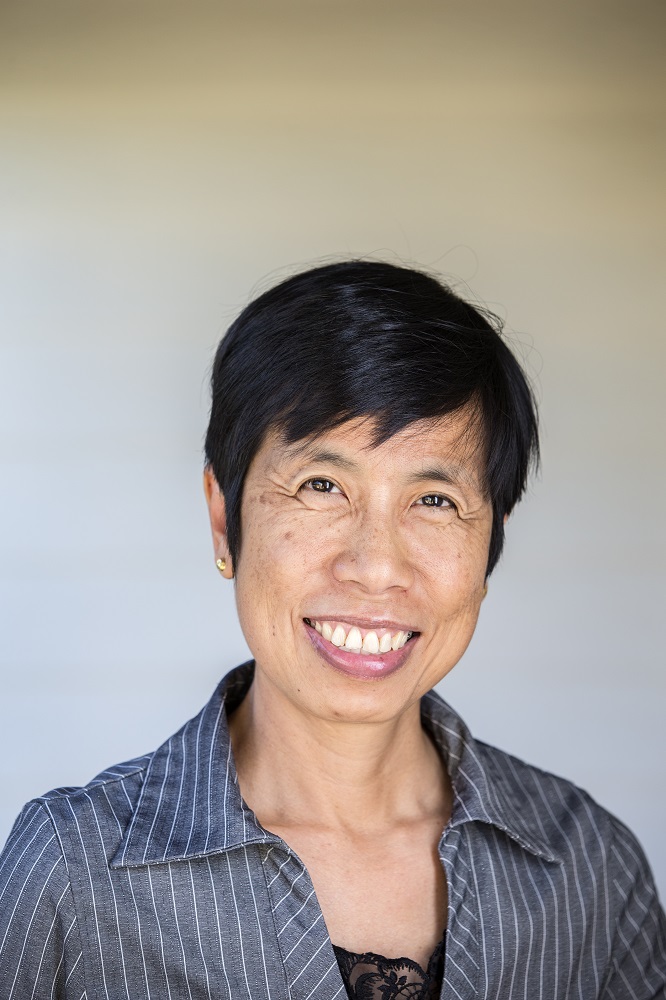
The first thing you learn about being homeless is to always watch your back. The worst thing is you can’t really sleep well – you always sleep with one eye open. The insecurity you feel is indescribable and the paranoia is off the charts. – Marcus, Concord and Five Dock, Sydney
One of the toughest things is lack of security. If I don’t have anything to calm the nerves, it’s really hard to sleep. I often look up at the expensive high-rises and wonder what their lives are like. What is it like to go and buy a trolley full of food? I never planned on being homeless. – Jason B, Tattersalls Arcade, Edward St, Brisbane
Hopeless – that’s what it feels like to be homeless. There are not enough places out there for all of us. It hits you in the guts, makes you feel low and not worth anything. It is just shit, and now I need to find somewhere new to live again in the next two weeks for me and my cats. Last time this happened I ended on the streets and had to pay for my cats to go to a cattery until I got housing sorted. – Brett, West Perth
When I wake up in the morning the first thing I do is check that my bag and belongings are still there and that they haven’t been stolen. Luckily, it’s never happened to me before. The park that I sleep in has other people sleeping there as well. We all know each other and at night we sit around and chat. I’ve been there nearly 18 months. At least two out of five days someone wakes me up in the middle of the night and asks for cigarettes, rollie papers, small change. I even had people ask me for directions to the bus stop or tram stop. I think people do it on purpose to annoy me. The seagulls are my personal alarm clock, they always squawk near me between 7 and 7.30am until I wake up, then they leave straight away. Today they started at 7.20am – I checked my watch to see what time it was. – Tukuf, Melbourne CBD
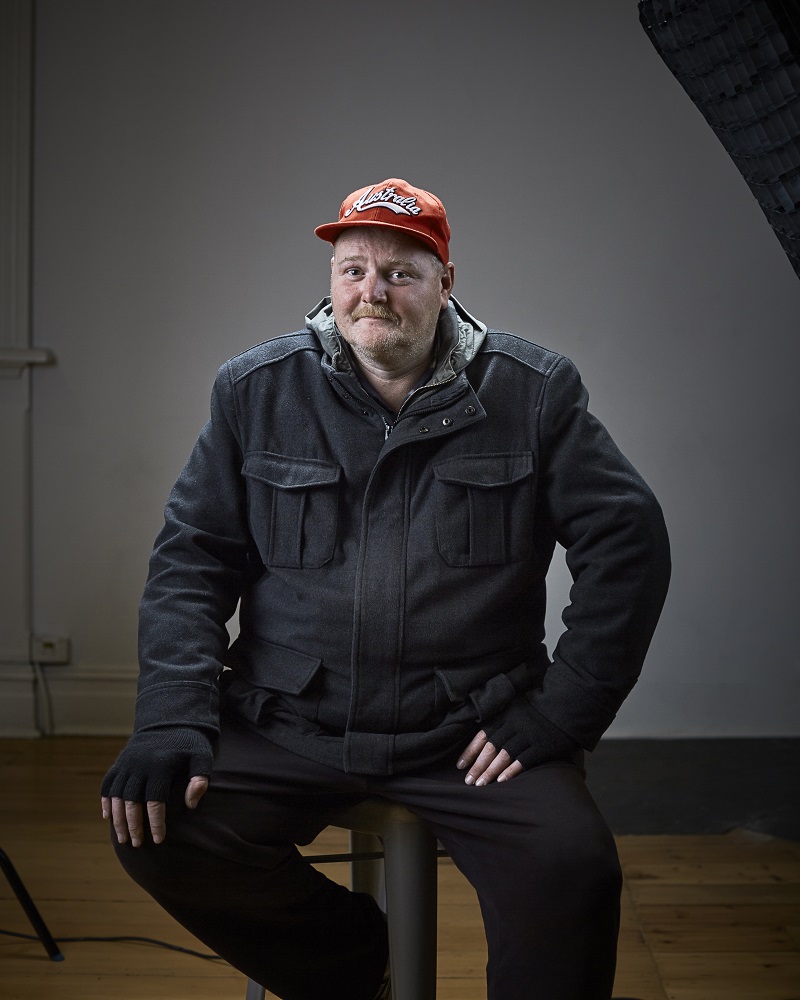
Homelessness follows you around; there’s no escaping it while you’re in a hostel. Privacy is non-existent – there are communal showers and dormitory sleeping. Many of those alongside you are simply men needing assistance with mental health issues, making for an uneasy, tension-filled environment. Sleeping with your belongings tied to your legs or to the bed is not uncommon, as those with life-ruining dependencies would steal them to convert into cash. Not that you can have many belongings. Homeless hostels have little in the way of storage space for goods, so almost everything you possess has to be discarded other than the things you can physically carry. There is no release or freedom from the tension. By definition anyone who is homeless is enduring a crisis and people in the midst of a crisis are volatile and unpredictable. They are also extremely vulnerable and sadly there are those who exploit that. Homeless hostels are well known to all the different agencies and so when you give out your address to Centrelink, police, post office, a doctor or anyone you might encounter on the road to re-establishing yourself, it’s a stark admission that “I have failed”. People might wonder why living in a hostel is considered “being homeless” – after all you have a roof over your head and in most cases have at least one meal a day. Unfortunately, the demand for places far outstrips supply. Homeless hostels are not a permanent solution. Most can only offer a temporary stay, which could be as little as a few weeks. In that time, they hope you can get your life back on track by organising your finances, organising housing, organising your health needs, rebuilding relationships with family… it’s a tall order. The pressure on places is such that you have to be turned out again whether you succeed in these things or not. For every space in a hostel I got the impression 100 people are clamouring at the door. – Ben G, QPAC end of Victoria Bridge, Brisbane
What I remember about being homeless is being hungry. Sitting in the park in the evening and watching couples and families having their picnics and enjoying their food – I just wanted something to eat. There are places for people to get food, I just did not know where to go when I was on the streets. – Caroline, London Court, Perth
Sleeping on the street is very scary and unsafe. I didn’t get much sleep and was always interrupted by noises like cars, trains and people. Sometimes I would sleep near a shopping centre but security would always move my stuff and tell me to leave. I even got kicked by a security guard once. I then found an abandoned building. It was falling down and pretty dangerous but I felt safer there. – Garry, Flagstaff Station, Melbourne
I was sleeping rough for a long time, since I was 14. I was scared the first time; I didn’t know anyone. I had terrible sleeps – the concrete was hard and hurt my back. Eventually I met Wayne Perry but everyone called him Mouse. We became friends. We would walk the streets together, and he kept an eye out for me. It helps having a friend on the street. – Willy, Geelong and Melbourne
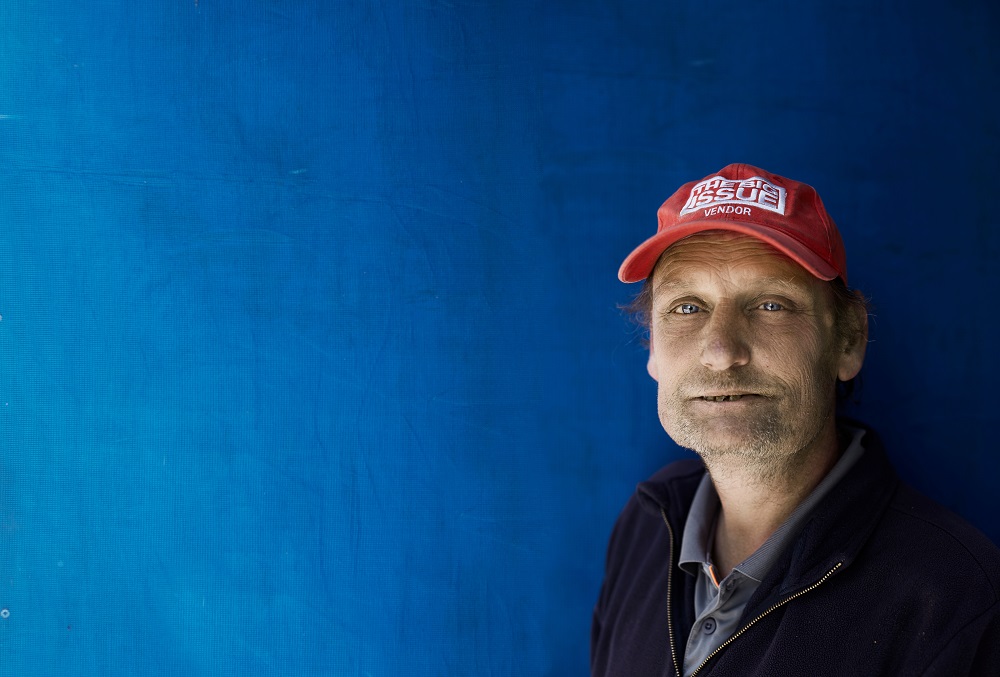
Being homeless can be isolating and lonely. There are many moments of desperation and hardship. Your survival depends on your resilience, determination, resourcefulness and your capacity to survive in the face of such adversity. However, you get a unique comradery with others in your situation. You can be living in the gutter but looking at the stars. – Graham H, West End, Brisbane
I remember sleeping rough in the middle of winter. It was hard every night to find somewhere safe and warm to sleep. Usually I would end up walking from the city to the suburbs and back again all night. I would always be thinking of what I could possibly do tomorrow to get a roof over my head the following night. Come dawn, I would get on the train to Mandurah then Joondalup – it was the only way to get some sleep in relative safety. I don’t know if people realise how exhausting it is to be homeless and how distressing it is to always feel unsafe. When I finally got stable accommodation, it took me months to stop tossing and turning throughout the night. – Coco, ABC, East Perth
Years ago, I used to sleep behind a church. On the back wall was painted a huge mural of Jesus Christ on the crucifix. I’d always feel safer when I slept there knowing someone was looking down on me and watching out for me. – Kevin, Anzac Tunnel, Brisbane
I like that I work close to where I am sleeping. I was getting threats where I was living before but I feel safe where I am now. I always make sure there are cameras near me at night. – Magoo, Adelaide St, Brisbane
When you come to the realisation that you do not have one friend or family member that will put you up – it is a feeling of isolation and loneliness like no other. You feel exposed, shameful and alone. Every day, your aim is to find food and a shower. There is a particular smell to homelessness, but I can’t describe it. Two vendors took me into their squat. Thank God for them. – Rach M, George St, Brisbane
Being homeless is as much about freedom and getting to know people as anything else. There are no rules and few responsibilities. That’s not to say there is no risk, from other people, police and the elements, especially in winter. That’s when your sleeping bag is your best friend. There are always smells and sounds, especially of cars and motorbikes. They actually comfort me, probably because my old man owned a taxi company. I guess I can find my home anywhere.
Jamie, East Perth
I slept rough by the river in South Perth, so I always woke up to the smell of nature, freshly cut grass. In the morning I would go to the Salvos and get fed. Then I would go to a day centre to get washed. What really hit me was how many people walk past and don’t take any notice of you. Everyone chatting, laughing and meeting friends. I wished I could be one of them. But when you are on the streets you don’t exist, you aren’t even a number to them. The only people that took notice would be the cops or council workers who move you on. I had a very strong sense of belonging with other street people, especially other Indigenous people. We always had each other’s backs. We were like one big family, we had to be, to survive. Those were very hard and dark times. A lot of my friends didn’t make it through. – Vernon B, Adelaide
I became homeless when I was 13. At first, I stayed at friend’s homes, sleeping in a bedroom with other people, on the couch and staying in garages. It was a very lonely time. Being homeless means you always have to watch your back. There was nobody that I could trust. There are lots of people who would rip you off. Lots of times I have had all my stuff stolen. One of the worst things about being homeless is the lack of sleep. Today I have sleeping problems from being homeless. Today I live at Common Ground and have my own unit, safe and happy. – Grant, Canberra
The scariest thing about being homeless was worrying about the police taking me to jail for vagrancy. Even today, the smell of a bathroom and bad coffee remind me of being homeless. – Daniel K, Adelaide
The early evenings were always the hardest part of the day. As I made my way back to whichever empty warehouse, squat, lane or freeway off-ramp that was currently a safe place to sleep, I’d sink into the deepest parts of homeless depression.
The daylight hours were tolerable. Some days were almost enjoyable. Usually the ones when I could scrape together enough cash to indulge in one or more of the various illicit substances available on the streets. Though it was only a temporary escape, the drugs provided a release from the depressing fact that at the end of the day I was still without a home. And that fact was what made those evenings so hard to deal with. As I walked through the streets of the city and inner suburbs all I noticed was the comfort and security of other people’s lives. Whether they were sitting in the cafes and bars, enjoying a meal and a drink with their friends, or curled up on the couch settling in for a night of televised banality. For me, it brought back memories of better times and better places. Memories, some merely weeks old, some reaching back to childhood – resulting in an emotional mix of loss and desire to regain a sense of safety and security. Something that many take for granted as they climb into their comfy beds, beneath their warm doonas and soft sheets. But standing there, my life contained within the small pack slung over my shoulder, there’s nothing I can do except push those emotions back down deep inside. Then continue on my way to my sleeping spot and hope my cardboard mattress hasn’t been removed. Wrapped in my blanket, my pack for a pillow, I’ll drift off to sleep hoping the next day will be better, or at least decent. – Sheldon C, Acland St, Melbourne
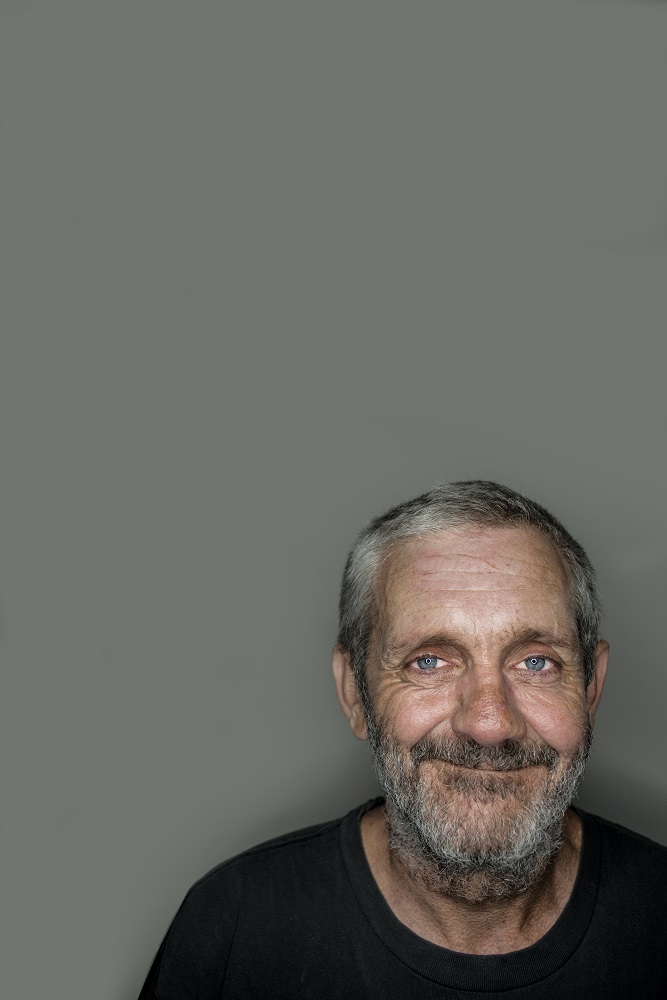
I was homeless for 10 years, sleeping rough. I felt like a zombie. You are alive, but you don’t really exist. Your depression just spirals, and you don’t wanna do anything. Now, when I look at other homeless people and alcoholics I know how they feel. They are dead. You don’t feel anything, you can’t taste anything because of the alcohol. Most of the time it’s quiet and you feel peaceful. The only sounds that broke the silence were the sounds of police cars arriving and shining bright torches into our eyes and telling us to move on. They don’t tell you where to go…they just tell you to go. – Simon, Adelaide CBD
I was first put out on the streets when I was eight years old by my father. Every noise at night was very scary, you don’t know if you will be safe. Having no place to call home wasn’t easy when people out there look at you like you are the scum of the earth. If it weren’t for charities that give a person a place to go and get hot showers and meals, you would have nothing. But other people on the streets will make sure you stay safe; they all look after each other more than someone that has a home. – Ricky M, Adelaide CBD




















